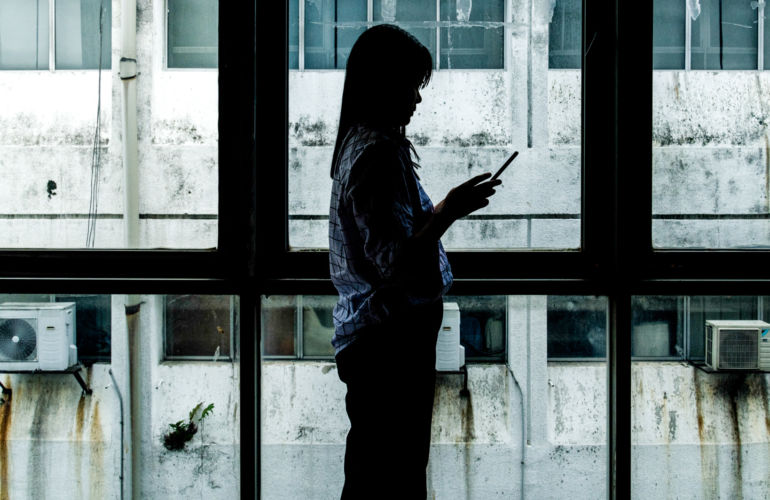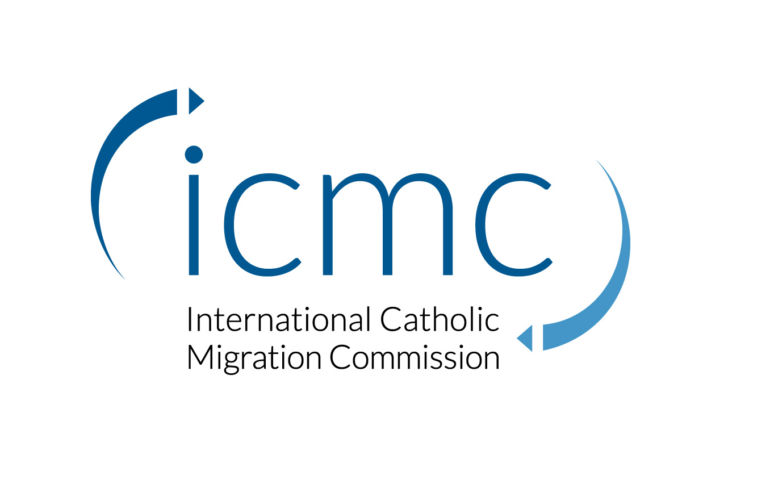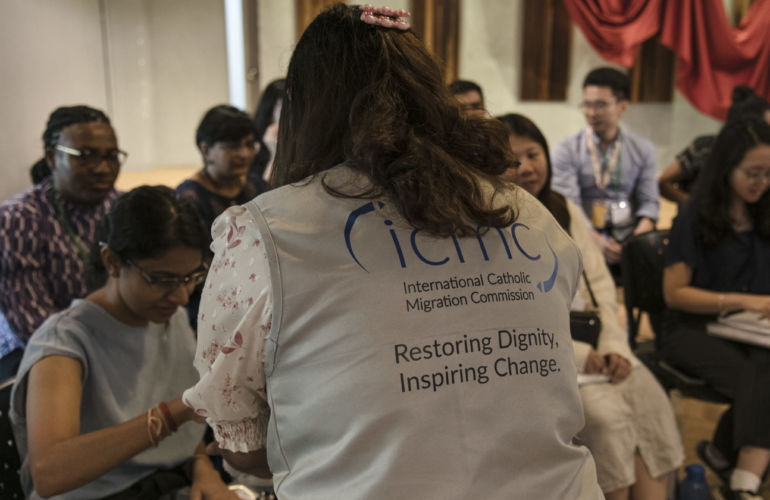How ICMC Malaysia Is Reaching Refugees During the COVID-19 Lockdown
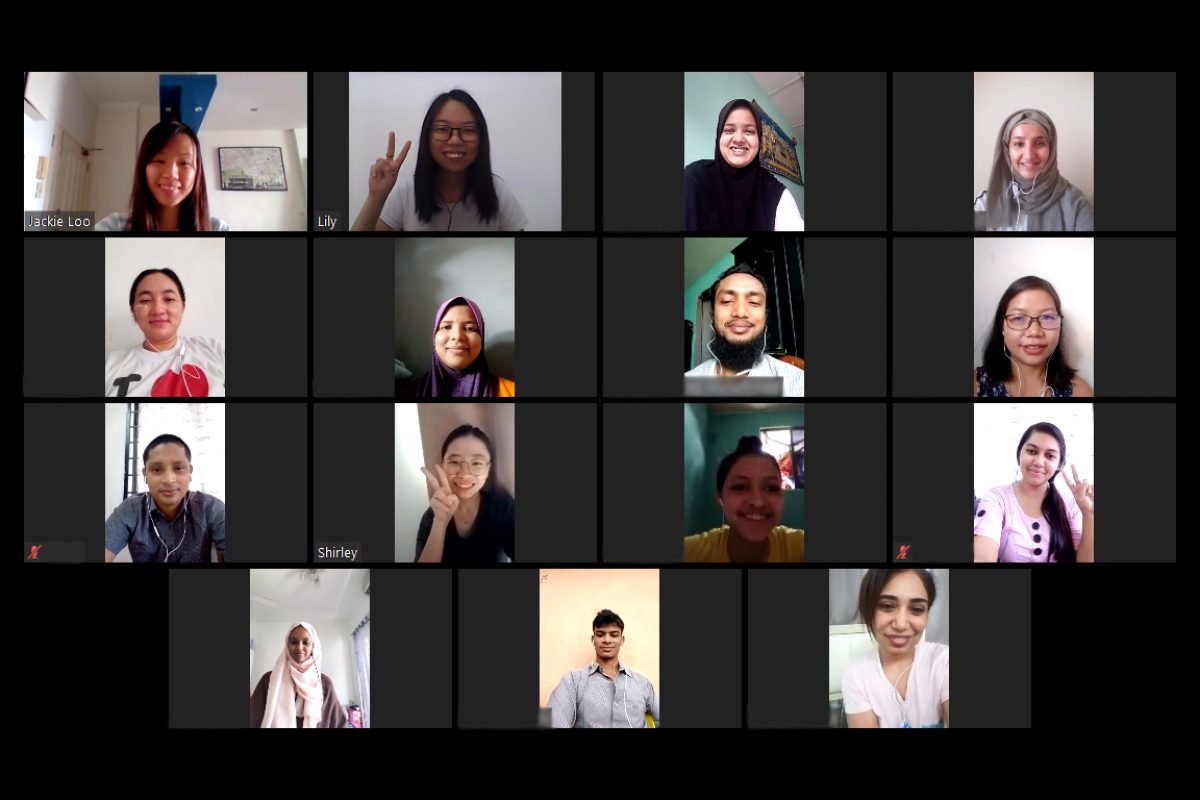
In Malaysia, the spread of the new coronavirus and subsequent lockdown have left many refugees more vulnerable than ever, both financially and in terms of their safety. ICMC continues to help provide for their basic needs and to protect refugee survivors of gender-based violence, adapting its services to the new circumstances.
Hafsa* first contacted ICMC in March, shortly before the coronavirus lockdown was decreed in Malaysia. As a refugee mother of five, she was hesitant to ask for help. She waited a long time before gathering the courage to reach out and report her experience of gender-based violence to the International Catholic Migration Commission (ICMC).
“When I called her for a follow-up in April, she said that it felt like nobody else was listening to her,” says Pohleen Tan, project coordinator for ICMC’s Community Shelter project in Kuala Lumpur, run by the Rohingya Society of Malaysia. “But she was really happy that someone called to ask about her condition. She was trying very hard to make sure that she doesn’t get evicted and that she can support the whole family.”
ICMC Malaysia’s New Awareness-Raising Animated Videos
By then, the coronavirus lockdown was in place, disproportionately affecting the lives of vulnerable refugees. According to estimates, between 60 and 70% of refugees in Malaysia have lost their jobs because of lockdown restrictions.
The preexisting fear of arrest because authorities do not recognize the refugee status is heightened by police roadblocks meant to enforce the COVID-19 lockdown. To make matters worse, the country has seen an increase in xenophobia and online hate speech since the beginning of the pandemic. The discrimination mainly targets Rohingyas, the largest refugee population in the country.
In the face of these hardships, ICMC staff have been hard at work, ensuring the safety of refugees and providing for their basic needs. As reports that lockdowns worldwide increase the frequency and severity of domestic abuse, ICMC staff worked to maintain their services to survivors while adapting delivery to the safety and hygiene standards necessary during the pandemic.
Whenever possible, ICMC has continued to provide services remotely. The Refugee Protection Corps, the team of refugees that acts as an essential link with communities, continued its activities from home. Throughout the crisis, Corps members have continued to operate ICMC’s hotlines for refugee survivors of gender-based violence, to serve as interpreters for reports of abuse and therapy sessions and to provide peer counseling.
ICMC has provided personal protective gear and disinfectant to employees unable to work from home, such as those running safe shelters and distributing emergency cash assistance. With the help of the UN Refugee Agency, UNHCR, essential ICMC staff have received authorization letters allowing them to move around the city to perform their tasks.
All shelters for survivors of gender-based violence engaged by ICMC through its partners have continued to welcome survivors. “We had to come up quickly with procedures on how to sanitize, rearrange spaces to ensure social distancing, and implement quarantine for new survivors,” explains Tan. Newcomers must stay in quarantine in their rooms for a week, and all survivors and staff must follow a hygiene protocol. The shelter is sanitized several times daily.
The emergency funding program continues to provide cash assistance to survivors who are creating a new life for themselves and their families after having fled abuse and is responding to new vulnerabilities induced by COVID-19. That is the case, for example, of single-woman-headed households.
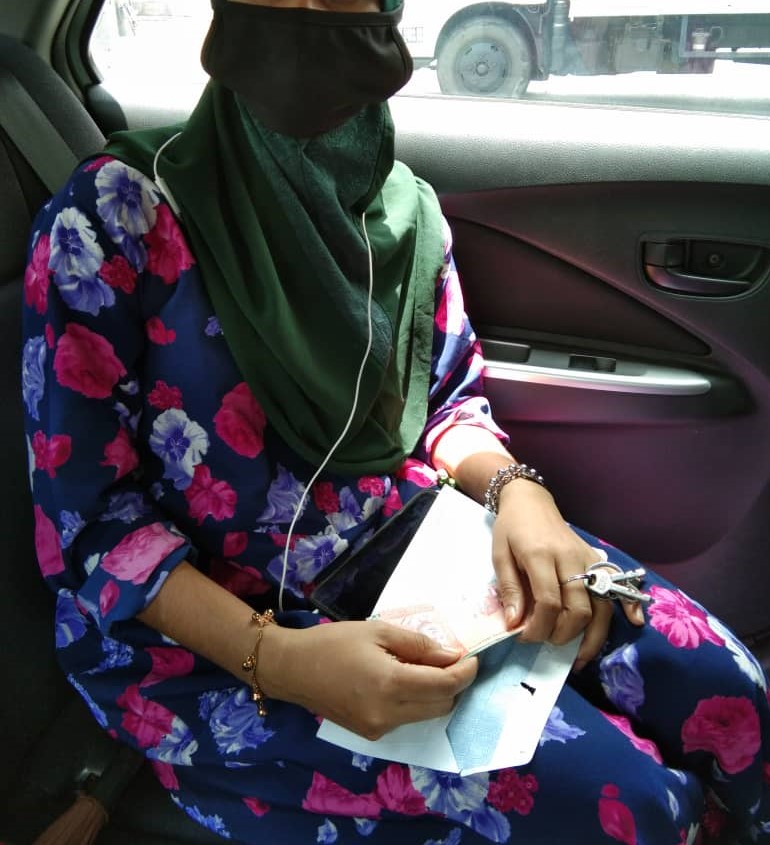
“During this COVID-19 pandemic, the main concern for many refugees is for food and rent, basically cash assistance,” says ICMC staff member Carmen Low. “But right now, a lot of NGOs and organizations are exhausting their available financial aid,” adds Low.
She explains that the lack of financial resources combined with confinement can lead to increased stress, which can result in violence towards family members. Therefore, ICMC has extended its support to at-risk families to help maintain peace in the home during lockdown. “We try to alleviate as much stress as possible,” Low says.
Initially halted by the pandemic, ICMC’s awareness-raising activities are also being transferred online. A series of videos aimed at the Rohingya community have been published on social media platforms, focusing on topics that include the negative effects of child marriage and of stereotypes about women and men. They aim to replace door-to-door activities as long as social distancing is in place.
ICMC’s literacy and livelihood activities are temporarily on hold as partner organizations focus their efforts on food distribution to vulnerable refugees. As the reopening measures in Malaysia do not yet allow schools and community centers to welcome people, several partners are considering education and livelihoods activities online.
“Even though it is a very difficult time, I think it’s still important to treat refugees with dignity. Many of them may be struggling, so it’s very important for us to support them in any way possible, through financial aid or referral services, or even just by lending them a listening ear,” says Tan. “You can see their resilience and their determination to survive. And that really makes me want to help.”
*Name changed to protect refugee identity
